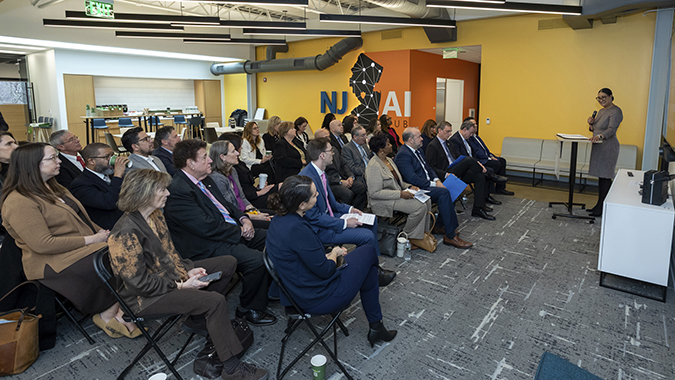The Georgetown University Center on Education and the Workforce (CEW) ranked 4,500 colleges and universities nationwide on return on investment (ROI) metrics and seven New Jersey postsecondary institutions landed among the Top 100 on the 2022 list.
The CEW’s online tool released Thursday provides a sortable table ranking schools by ROI metrics, including tuition, median student debt and earnings, and the share of students with earnings that are higher than high school graduates. The data is designed to help prospective students and parents answer the question of whether a college degree will be worth the investment.
The rankings include metrics that measure the “net present value” (NPV) of a particular college based on costs, future earnings, and the length of time it would take to invest and earn a specific amount of money over a fixed horizon. The NPV data is presented across 10, 15, 20, 30 and 40-year intervals.
Two New Jersey institutions ranked among the Top 20 for highest returns on investment 40 years after enrollment – Princeton University (12) and Stevens Institute of Technology (19). Nationally, the top five schools were the University of Health Sciences and Pharmacy in St. Louis (1); Albany College of Pharmacy and Health Sciences (2); Massachusetts College of Pharmacy and Health Sciences (3); California Institute of Technology (4) and Massachusetts Institute of Technology (5).
An average of 60% of college students across institutions nationwide earn more than a high school graduate after 10 years. However, at 1,233 postsecondary institutions (30%), more than half of their students 10 years after enrollment are earning less than a high school graduate, the CWE found.
“College typically pays off, but the return on investment varies by credential, program of study, and institution,” CEW Director Dr. Anthony P. Carnevale said. “It’s important to inform people about the risk of taking out loans but not graduating, which could leave them without the increased earnings that would help them repay those loans.”
Private colleges that primarily offer bachelor’s degrees lead the list of institutions that provide the highest returns on investment 40 years after enrollment. Meanwhile, colleges that predominantly offer certificates or associate degrees have the highest return on investment 10 years after enrollment.
Twenty-five of the 30 institutions with the best short-term net economic gains primarily grant certificates or associate degrees, the CEW said. Because these programs require fewer credits to complete, they generally leave students with less debt and allow them to enter the workforce sooner. In the long run, however, the returns of these programs fall behind those of bachelor’s degree-granting institutions because students’ long-term earnings are lower.
In addition to Princeton University (12) and Stevens Institute of Technology (19), five other New Jersey postsecondary institutions, including three nursing school programs, ranked among the Top 100 for ROI:
- New Jersey Institute of Technology (65)
- Teterboro School of Aeronautics (74)
- Chamberlain University-NJ (85)
- Jersey College (99)
- JFK Muhlenberg Harold B. & Dorothy A. Snyder Schools (99)
Other New Jersey postsecondary institutions that placed high on ROI after 40 years included:
- Rutgers University-Camden (178)
- Rutgers University-Newark (182)
- Seton Hall University (200)
- Divers Academy International (208)
- Rutgers University-New Brunswick (215)
- The College of New Jersey (245)
The Georgetown University Center on Education and the Workforce (CEW) is a research and policy institute within Georgetown's McCourt School of Public Policy that studies the links between education, career qualifications, and workforce demands. Go here to read “Ranking 4,300 Colleges for ROI” and use the online tool.




